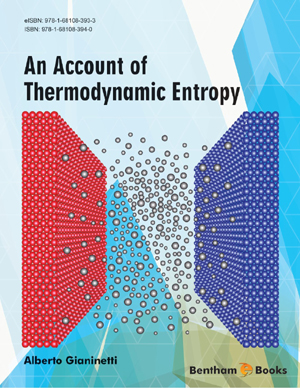Abstract
Starting from the observation of spontaneous phenomena, it can be envisioned that, with time, every isolated system tends to settle into the most equilibrated, stable, and inert condition. In the very long term, this is the most probable state of a system. This can be shown to be a universal law, the second law of thermodynamics, defined as “the tendency to the most probable state”. Thereafter, it is intuitive that “a function that measures the equilibration, stability, and inertness of a system” is maximized by the second law. This function is called entropy.
Keywords: Boltzmann factor, Deviation from equilibrium, Dissipation of energy, Energy conservation, Entropy, Free energy, Intensive state functions, Levelling of energy, Macroscopically available work, Meaning of expressions, Microscopic dynamic equilibration, Microscopic forces, Net statistical force, Particles motions, Potentially available work, Probabilistic distributions, Settlement of systems, Second law, Thermodynamic stability, Waste heat, Wasting of work.






















